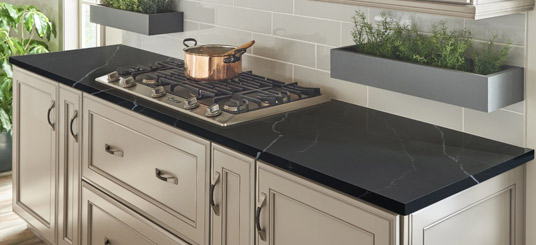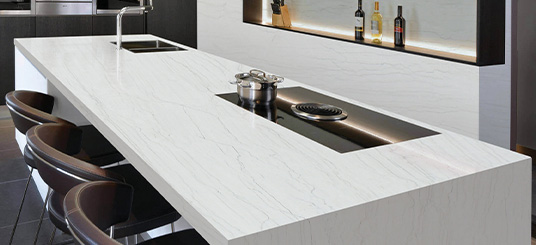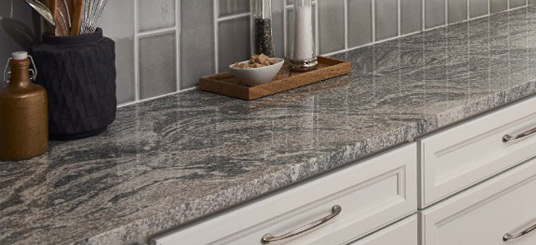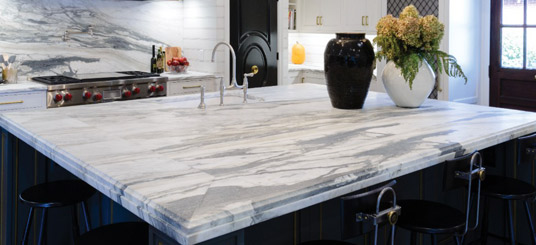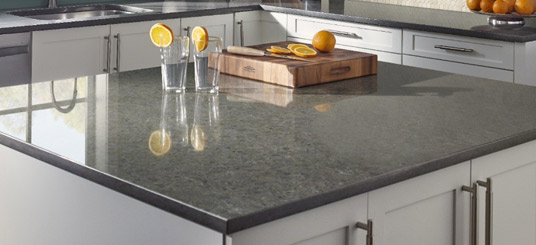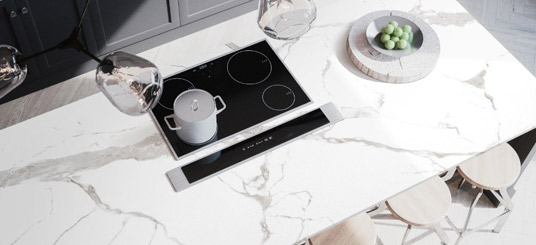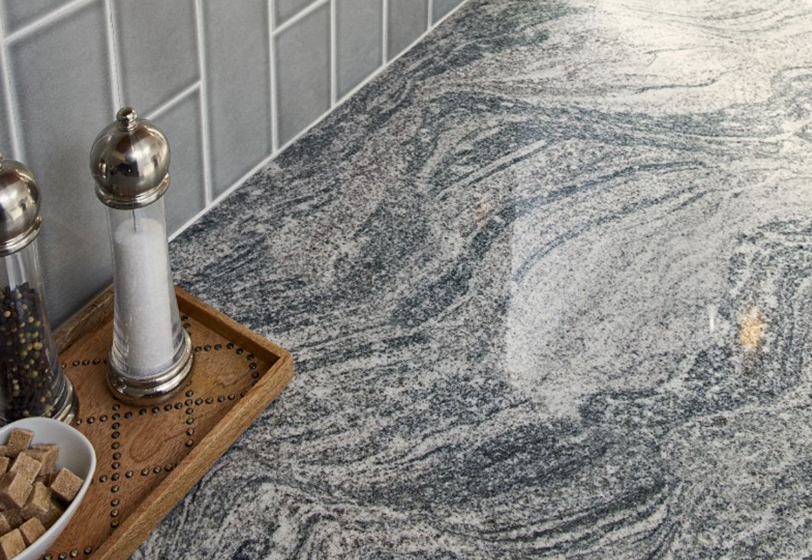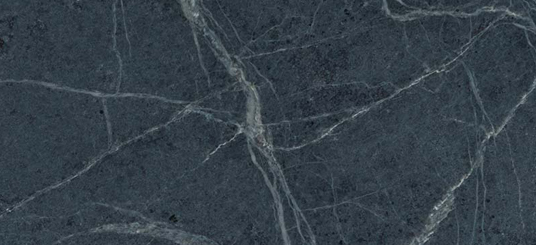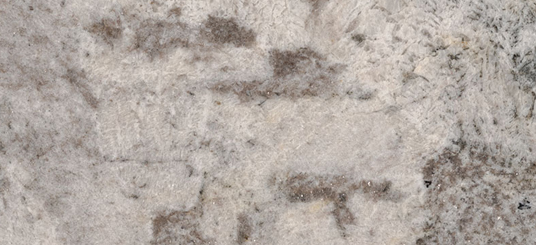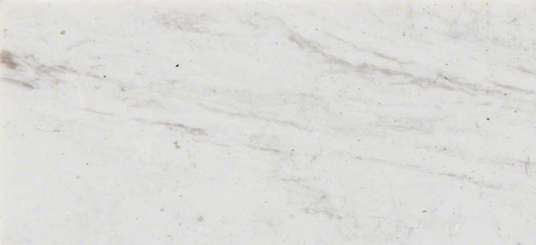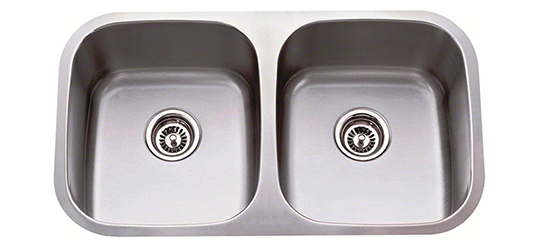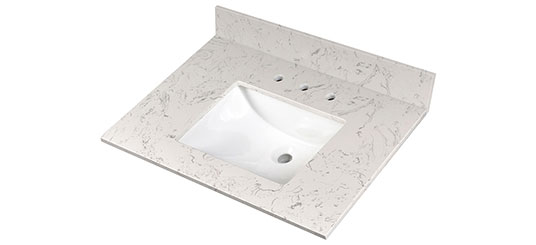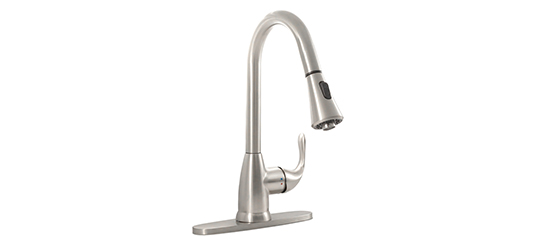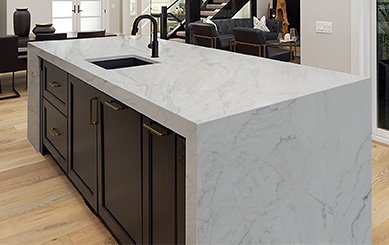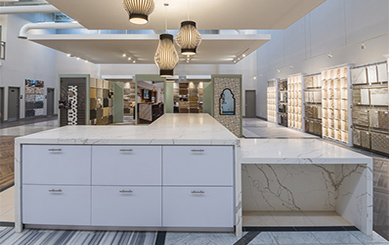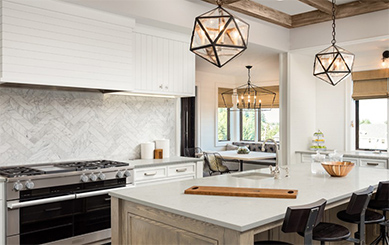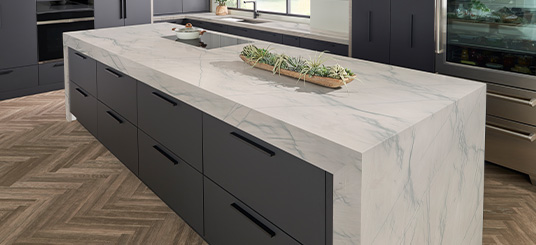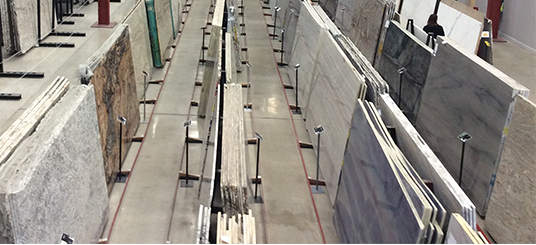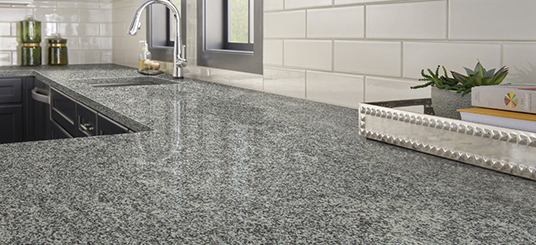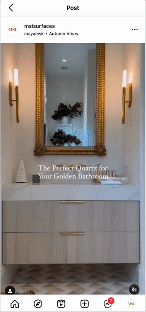MOST POPULAR

LEARN ABOUT YOUR OPTIONS
Q™ PREMIUM NATURAL QUARTZ

PREMIUM NATURAL QUARTZ™
Low maintenance, stain-resistant, and nearly indestructible quartz countertops line, Q Premium Natural Quartz is the preferred countertop for homeowners, builders, and designers. Trendsetting quartz colors, colorways, coveted new styles, here’s to all the ways you can create family-friendly dream spaces with Q.
Q™ Quartz Countertops
TRY THIS LOOK IN OUR KITCHEN VISUALIZER
KITCHEN VISUALIZER
PREVIEW ACTUAL SLABS IN STOCK
REAL TIME INVENTORYStile® PORCELAIN SLABS
Stile® puts our love of beautiful veins and modern sophistication on display in large format, lightweight, and ultra-thin polished porcelain panels (6 or 12mm-thick). But why stop at the countertops? Stile® is a modern-day marvel suitable for virtually all your interior and exterior residential and commercial projects.

Stile®
A no-fuss versatile lineup, designers rely on Stile’s organic color ways and natural-stone-inspired textures to create ultra-trendy spaces.
EXPLORE Stile®UNIQUE SOLUTIONS & SINKS
Did you know we offer Prefabricated Countertops with matching backsplashes – ones made from authentic stone and Q Premium Natural Quartz? Or that we carry recycled engineered Venetian Marble Slabs? On the hunt for stainless steel or ceramic sinks? We’ve got that too.
REAL PROJECTS
LET US HELP
LEARN MORE ABOUT COUNTERTOPS
Countertop Choices
Quartz and granite have been the most popular countertop materials for many years. Other popular surfaces include marble, quartzite, soapstone, and porcelain.
Here is a brief description of each:
Quartz
Quartz is made by combining quartz particles, color pigments, and resins to create a solid surface. Quartz countertops are easy to clean, provide warmth and continuity throughout a kitchen, and feature an elegant, formal look. Learn more about MSI’s quartz countertop brand, Q™ Premium Natural Quartz.
Granite
Granite was once considered a luxury material available only to homeowners who could afford it. After being discovered by more people, granite exporting was increased in Brazil, China, and India. Today, granite is available in a variety of unique colors, with exotic patterns and more economical patterns. Learn more about Granite Styles and Colors.
Marble
Marble countertops are a very trendy, beautiful choice for high-end kitchen countertops. Marble is available in a variety of colors and styles with veining and mineral deposits that add visual interest. The more popular or appealing the marble, the higher the cost. Review our Marble Colors or learn more about the care and characteristics of marble.
Porcelain
Porcelain slabs are made from thin, large sheets of porcelain that are cut and finished to the size of your countertops. Porcelain slabs are known for its strength and resistance to scratching. It’s also resistant to stains and bacteria making them a hygienic and low-maintenance choice. Porcelain slabs are available in a range of colors, patterns, and finishes - choose a Porcelain Slab style that complements your décor.
Quartzite
Quartzite is a natural slab that includes both bold colors and lighter tones with subtle veining. Quartzite, which registers between a 7 and 8 on the Moh’s hardness scale, is more scratch- and acid-resistant than most countertop surfaces and can withstand hot baking dishes or pans. Quartzite offers virtually no maintenance and no etching; it also has one of the best durability ratings. Explore Quartzite Styles and Colors.
Soapstone
Soapstone is a natural stone that is known for its soft, smooth surface and non-porous qualities. One of the main advantages of soapstone is its durability. It is resistant to heat and stains, making it a good choice for kitchen countertops. Soapstone is also non-porous, which means it does not absorb liquids or bacteria, making it a hygienic choice for kitchen surfaces.
Travertine
Travertine is a durable natural stone that is formed by mineral deposits, it is characterized by its porous, textured surface and unique, varied color patterns. It is generally recommended to seal travertine countertops to protect them from staining and etching. MSI offers full size and prefabricated slabs of Durango Cream Travertine and prefabricated slabs of Latte Travertine.
Venetian Marble
Venetian Marble is an engineered surface that is made to look like natural marble. Recycled natural stone is pressed and heated to create an environmentally friendly countertop option. Engineered marble has many of the same characteristics as natural marble. However, it is generally more affordable, easier to maintain, and less prone to staining, scratching, and etching. Learn about the different styles and colors of Venetian Marble.
Countertop Costs
If you're looking for an exotic, one-of-a-kind kitchen countertop or an inexpensive engineered countertop, choosing a kitchen countertop material may seem like an impossible task.
Whether you're upgrading your existing surfaces or starting from square one, you'll want to consider a wide range of kitchen countertop prices before making any major purchasing decisions.
While natural stone surfaces such as granite or marble may be the gold standard in your neighborhood, there are plenty of affordable natural stone and quartz countertop options that mimic natural
stones —and appear equally as stylish.
Natural surfaces like Granite, Quartzite, Marble, and Soapstone, and engineered stone surfaces like quartz and porcelain, have cost-effective styles that are both durable and beautiful.
On average, expect countertops to range in price from $60 to $300 per square foot installed. Granite countertops cost from $50 to $150 per square foot per square foot installed, quartz costs generally
less — from $55 to $125 per square foot installed, Marble countertops cost between $75 to $250 per square foot installed, and Quartzite countertops cost from $75 to $200 per square foot installed. Soapstone countertops range from $60 to $150 per square foot installed and Porcelain countertops cost between $55 to $120 per square foot installed.
Selecting The Right Countertop
There are many factors to consider when selecting a countertop material for your home. Here are a few things to consider:
Durability: Some materials, such as granite and quartz, are more durable than others. Consider the amount of wear and tear the countertop will experience and choose a material that can withstand it.
Maintenance: Quartz is a manufactured material that does not require sealing. Sealing is recommended for most natural stone countertops, such as granite, marble, and quartzite. As a rule, marble countertops should be sealed at least once a year.
Cost: Different materials have different price points. Determine your budget and consider materials that fit within it.
Style: Choose a countertop surface that complements the style of your kitchen and home.
Staining and Etching: Left unsealed, Marble is more prone to staining and etching than others. Staining occurs when a substance such as oil, wine, or coffee is left on the countertop, leaving a permanent mark. Etching is when a chemical reaction occurs between the countertop material and an acidic substance, such as lemon juice or vinegar, resulting in a dull or discolored area on the surface.
Here are some common countertop materials and their characteristics:
Granite: Durable and heat-resistant but requires sealing and can be expensive.
Quartz: Durable, stain-resistant, and easy to maintain, but it can also be expensive.
Marble: Beautiful and unique, but more prone to staining and scratching and requires regular sealing.
Consider your specific needs and preferences when choosing a countertop material. It may be helpful to visit a showroom or speak with a design professional to understand the various options and their pros and cons. Check out our Countertop Selection Guide for information on the various countertop materials we stock and how to choose one that's right for you.
Countertop Maintenance
Here are some general guidelines for maintaining different types of countertops.
Quartz
Quartz countertops are very low-maintenance and easy to care for. They can be cleaned with a mild soap and water, and they do not need to be sealed. Avoid using abrasive cleaners or scouring pads on quartz, as they can dull the finish. Read more about Quartz Countertop Maintenance.
Marble
Marble countertops should be sealed to protect them from stains and etching. They can be cleaned with a mild soap and water but be sure to wipe up spills immediately to prevent staining. Avoid using acidic or abrasive cleaners on marble, as they can damage the surface. Read more about Marble Countertops and Tile Maintenance.
Granite
Granite countertops should be sealed to protect them from stains and bacteria. They can be cleaned with a mild soap and water, and they can also be wiped down with a granite cleaner. Avoid using abrasive cleaners or scouring pads on granite, as they can scratch the surface. Learn more about how to Maintain Granite.
Soapstone
Soapstone countertops do not need to be sealed and can be easily cleaned with a mild soap and water. Avoid using acidic or abrasive cleaners on soapstone, as they can etch the surface..
Porcelain
Porcelain countertops are non-porous and resistant to stains, making them easy to care for. They can be cleaned with a mild soap and water, and they do not need to be sealed. Avoid using abrasive cleaners or scouring pads on porcelain, as they can scratch the surface. It's important to follow the manufacturer's recommendations for caring for your specific type of countertop. Proper maintenance can help extend the life of your countertops and keep them looking their best. Learn more about Stile® Porcelain Slabs Care and Maintenance.
Travertine
One important aspect of travertine care is sealing. It is recommended to seal travertine every one to three years, depending on the level of use and exposure to water and other substances. In terms of cleaning, it is important to use a pH-neutral cleaner on travertine surfaces. Acidic cleaners can etch the surface of the stone, causing damage. It is also recommended to avoid using abrasive cleaners or scouring pads, as they can scratch the surface of the stone. Regular dusting and sweeping will help to keep the surface free of dirt and debris, and it is important to wipe up spills immediately to prevent staining.
Venetian Marble
It is recommended to use a pH-neutral cleaner on the surface to avoid damaging Venetian Marble. It is also important to avoid using abrasive cleaners or scouring pads, as they can scratch the surface. Regular dusting and sweeping will help to keep the surface free of dirt and debris, and it is important to wipe up spills immediately to prevent staining.
To avoid denting your countertop, it is important to avoid placing heavy objects or applying excessive force to the surface of Venetian Marble. It is also recommended to use cutting boards and trivets to protect the surface from heat and sharp objects. Learn more about Venetian Engineered Marble Maintenance.
Prefabricated Countertops
Prefabricated Countertops are cut and finished in advance and sold in standard sizes. They are typically made from materials such as granite, marble, travertine, and quartz and are pre-cut and finished to fit common kitchen and bathroom countertop sizes.
One advantage of prefabricated countertops is that they are generally less expensive than custom countertops. They are also easier to install, as they come pre-cut and finished, and can often be installed by the homeowner or a contractor in a matter of hours.
Granite and Quartz prefabricated countertops standard size are generally 112 by 26 inches and 2 CM thick, and islands are 108 by 42 inches and 2 CM thick. All the edges are laminated polished flat edges that are 1.5 inches thick. Preview our prefabricated slab colors in Quartz, granite, marble, travertine, venetian marble, quartzite, and porcelain.



